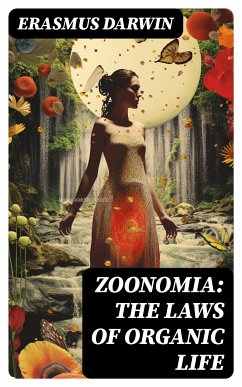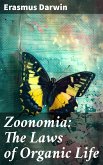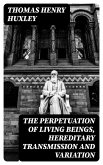In "Zoonomia: The Laws of Organic Life," Erasmus Darwin presents a groundbreaking treatise that interweaves science, philosophy, and poetry, forming a precursor to modern evolutionary thought. The book delves into the principles of biology, exploring the laws governing organic life with profound insights into heredity, adaptation, and the interconnectedness of species. Darwin's literary style is both lyrical and methodical, reflecting the Enlightenment's fervor for reason and empirical observation, while challenging prevailing notions of the natural world in a manner that foreshadows the works of later naturalists. Erasmus Darwin, a noted physician, poet, and philosopher, was part of the intellectual milieu of 18th-century England that laid the groundwork for future scientific exploration. His interactions with contemporaries such as Joseph Priestley and his own role in the Lunar Society highlight the interdisciplinary nature of his thoughts. Darwin's experiences as a medical practitioner and his interests in botany and natural history were pivotal in shaping the ideas presented in "Zoonomia," as he sought to reconcile scientific inquiry with poetic expression. This seminal work is highly recommended for readers interested in the origins of evolutionary theory and the interplay of science and art. Erasmus Darwin's innovative ideas continue to resonate, making "Zoonomia" an essential read for those seeking to understand the development of biological concepts and the rich intellectual currents of the Enlightenment.
Dieser Download kann aus rechtlichen Gründen nur mit Rechnungsadresse in A, B, BG, CY, CZ, D, DK, EW, E, FIN, F, GR, H, IRL, I, LT, L, LR, M, NL, PL, P, R, S, SLO, SK ausgeliefert werden.









